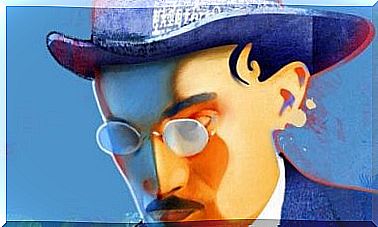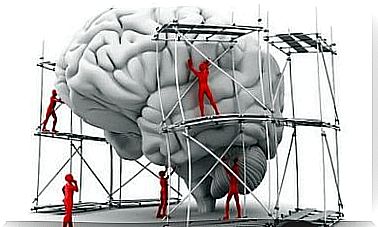Freud And Other Atheists Who Changed The World
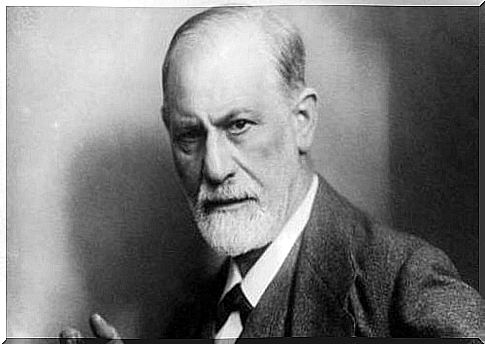
The relationship between man and God or the total absence of the same has always been a theme on which the most beautiful stories and the most bitter controversies have been built since ancient times. Usually, when asked for their opinion about God, people call themselves atheists, agnostics, or believers.
The idea of God is accepted in most of the monotheistic religions of the world, it belongs to millions of people and is the center of the organization of many societies. Sometimes, however, the skepticism towards religion is so strong that not only the idea of divinity is denied, but also intuitive or energetic perspectives such as the Law of Karma or the Law of Attraction.
Being an atheist does not mean being a better or a worse person
Perhaps we have all more or less received religious education, but there are people who believe and others who do not. What is certain is that believing or not does not make us better or worse people, there are many other variables that determine our history and our relationships.
Nonetheless, a recent experiment conducted by Jean Decety, a psychologist and neuroscientist at the University of Chicago, on children between 5 and 12 years of age from six culturally very different countries (Canada, United States, Jordan, Turkey, South Africa and China) , found that schoolchildren who do not receive religious values in the family were more generous in sharing items with other children they did not know. This is a curious fact.
Without asking ourselves whether it is convenient to believe or not, given that there is no clear answer to this question, it is still interesting to know that, throughout history, there are numerous characters who have defined themselves as atheists and have done so with firmness and conviction, even at the cost of retaliation. They simply expressed their beliefs freely; their way of conceiving human and social relations starts from a radically different point of view.
Let’s see together some of the most famous and discussed atheist characters:
Ayn Rand
Marxist thought is often linked to the idea of antagonism between society and the proposed religion. The creator of objectivism argues that, for any person who aspires to be important, assuming ideas such as religion or communism is nefarious.
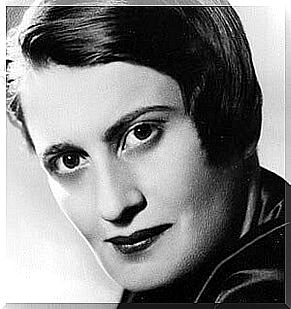
Ayn Rand exposes an agnostic neoliberal philosophy accepted in some intellectual and artistic circles, which felt the lack of a profound explanation of this individualistic ideology. Even if, in the course of her life, she contradicted herself in social and political issues, she always supported atheism to the point of death.
Albert Einstein
If there is one person whose idea about God is a cause for debate it is the very famous scientist author of the Theory of Relativity. Einstein was a staunch atheist, even though he publicly declared himself an agnostic, in an attempt to create enmities in the academic world.
He was not at all interested in religion and for him the concept of God was not central to his theories or to his life. One day, in one of his statements, he responded to the enormous interest of people who wanted to know his opinion on this issue.
Einstein explained that, for him, if God existed, he would be very similar to the one described by Spinoza: an extensive and devoid of a dualistic nature that differs totally from the conventional and accepted idea by most people of monotheistic religion.
Hypatia of Alexandria
Hypatia was probably the most important philosopher of antiquity along with Aspasia and Hipparchy. His figure remained tied to ostracism due to the attempt to cover up his enormous influence in the history of the different sciences that were still developing. This defamation was due to her status as a woman and an agnostic.

She was not involved in the religious events that had taken place in her city, which later led to her terrible murder by a religious hierarchy. A hierarchy that saw his knowledge in mathematics, philosophy and astronomy as an enemy to be feared. Unfortunately, his death was the prelude to the religious control of the Middle Ages.
Karl Marx
Karl Marx was a German intellectual of Jewish origin who, together with Friedrich Engels, founded scientific socialism, modern communism, Marxism and historical materialism. His work is impossible to summarize, but what is certain is that he categorically rejected the idea of God, religion and the existence of social classes.
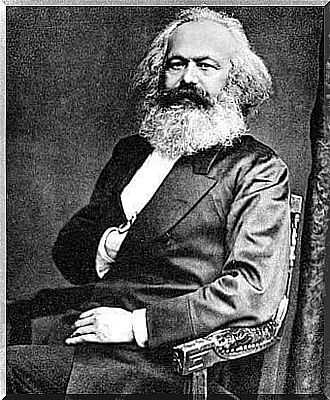
Even if, in principle, these ideas do not seem related to each other, when they are best developed they are perfectly logical and coherent. To be free, a society must try to be as egalitarian and just as possible, which is achieved through action and company name. If we abandon that reason and surrender to ideals like God or money to solve problems, society and its organization will drift.
Sigmund Freud
In the world of psychology, the figure of Sigmund Freud is equally revered and hated. Other people take a more balanced attitude towards this polemic neurologist and acknowledge the progress he represented in his time, but they consider his weight in psychiatry today totally unfounded, given that only a fraction of his theories are scientifically based.
We could define Freud as a lover of studies on the human being, someone in constant search of the reason for the complicated adult behavior, an avid person in the attempt to give a beautiful and global explanation of our most intimate and subjective side.
For Freud, the idea of God was absolutely not useful for explaining complex human relationships, on the contrary: it implied a regression in the maturity and commitment of men. It represented a personal failure to give truly satisfying and useful answers to the enigmas of human history.
